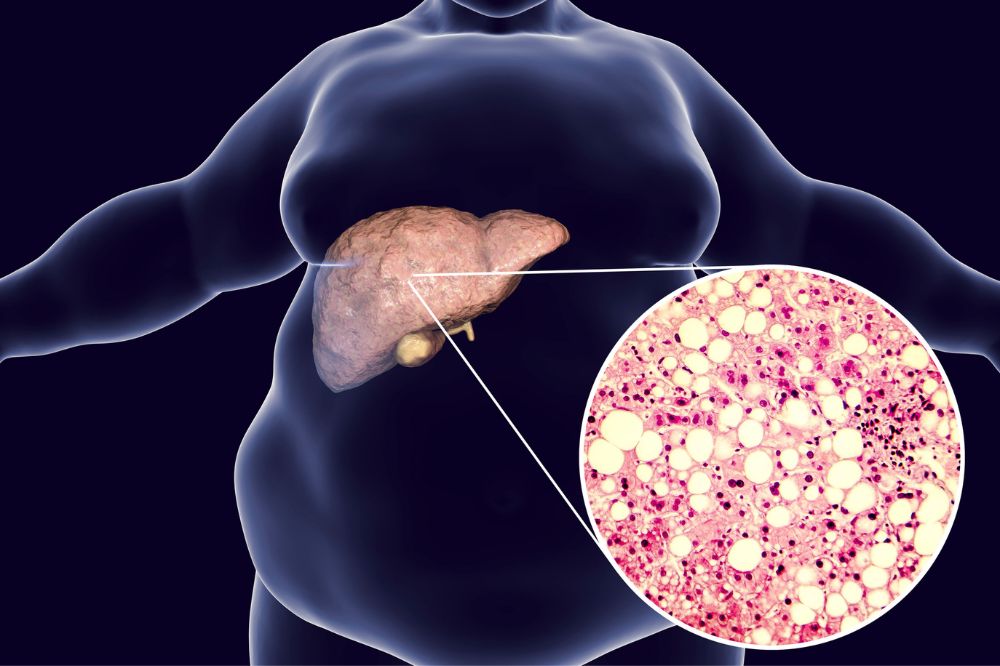Alcoholic liver disease (ALD) at DRHC Dubai
Alcoholic liver disease (ALD) is a condition that occurs due to excessive and prolonged alcohol consumption. It is a major cause of liver-related illness and death worldwide. The progression of ALD typically follows a continuum, starting with fatty liver, which can then progress to alcoholic hepatitis and eventually lead to alcoholic cirrhosis if the alcohol abuse continues.
At DRHC Dubai, we provide comprehensive care for patients with ALD, focusing on diagnosis, treatment, and long-term management.
Different stages of Alcoholic Liver Diseases:
1. Fatty Liver (Steatosis):
This is the earliest and most common stage of ALD. In this stage, excess alcohol consumption leads to the accumulation of fat in liver cells, causing liver enlargement. Fatty liver is usually reversible if alcohol consumption is stopped.
2. Alcoholic Hepatitis:
Alcoholic hepatitis is characterized by inflammation of the liver. It can cause symptoms such as jaundice (yellowing of the skin and eyes), abdominal pain, loss of appetite, nausea, vomiting, and fatigue. Alcoholic hepatitis can be severe and life-threatening. If alcohol consumption is stopped at this stage, there is a chance of recovery, but continued alcohol abuse can lead to cirrhosis.
3. Alcoholic Cirrhosis:
Cirrhosis is a late-stage liver disease characterized by the development of scar tissue in the liver, which replaces healthy liver tissue. The scar tissue disrupts the normal functioning of the liver, leading to liver failure. Symptoms of cirrhosis can include jaundice, ascites (fluid accumulation in the abdomen), edema (swelling), easy bruising and bleeding, fatigue, and mental confusion. Cirrhosis is irreversible, and the only cure is a liver transplant.
It's important to note that not all heavy drinkers develop alcoholic liver disease, and the severity of the disease can vary among individuals. Other factors such as genetic predisposition, nutritional status, and co-existing liver diseases can influence the development and progression of ALD.
Symptoms of Alcoholic Liver Disease
- Fatigue and weakness
- Loss of appetite and weight loss
- Nausea and vomiting
- Abdominal pain and swelling
- Jaundice (yellowing of the skin and eyes)
- Confusion and cognitive changes
- Easy bruising and bleeding
Diagnosis: Alcoholic liver disease (ALD)
Diagnosing ALD involves a thorough evaluation of the patient's medical history, physical examination, and a series of tests, including:
- Medical History and Physical Examination:
- Assessment of alcohol consumption habits and related health issues.
- Physical examination to check for signs of liver damage and complications.
- Blood Tests:
- Liver Function Tests (LFTs): Measure levels of liver enzymes, bilirubin, and proteins to assess liver health.
- Complete Blood Count (CBC): Evaluates overall health and detects anemia or infection.
- Coagulation Tests: Assess the liver's ability to produce clotting factors.
- Imaging Studies:
- Ultrasound: Provides images of the liver to detect fat accumulation, inflammation, and scarring.
- CT Scan or MRI: Detailed imaging to assess the extent of liver damage and rule out other conditions.
- FibroScan: A specialized ultrasound that measures liver stiffness, indicating fibrosis or cirrhosis.
- Liver Biopsy:
- A small sample of liver tissue is taken to examine the extent of liver damage and inflammation.
Treatment for Alcoholic liver disease
Treatment for ALD focuses on stopping the progression of the disease, managing symptoms, and addressing complications:
- Alcohol Cessation:
- The most crucial step in treating ALD: Support from medical professionals, counseling, and support groups is often necessary.
- Nutritional Support:
- Proper nutrition is essential for liver health: Dietary adjustments and supplements may be recommended.
- Medications:
- Corticosteroids: May be used to reduce liver inflammation in severe alcoholic hepatitis.
- Antioxidants and Vitamins: Support liver function and overall health.
- Management of Complications:
- Ascites: Treated with diuretics and dietary changes.
- Encephalopathy: Managed with medications and lifestyle modifications.
- Variceal Bleeding: Treated with endoscopic procedures and medications.
- Liver Transplant:
- In cases of advanced cirrhosis and liver failure, a liver transplant may be considered.
Why Choose DRHC Dubai for ALD Treatment?
- Expert Team: Our multidisciplinary team of hepatologists, gastroenterologists, and addiction specialists provides comprehensive care.
- Personalized Care: Tailored treatment plans to meet the unique needs of each patient.
- Advanced Facilities: State-of-the-art diagnostic and treatment facilities ensure the highest quality of care.
- Support Services: Access to counseling, nutritional support, and rehabilitation programs.
.png?width=281&height=59&name=bookanappointment%20(1).png)
Dubai Gastroenterology Clinic - Dr. Rami Hamed Center now provides the leading gastroenterologist in Dubai for Gastric balloons, Colonoscopy, Colon Cancer Screening, and so on. DRHC offers highly qualified liver specialist doctors in Dubai and a wide range of services on liver failure, nonalcoholic fatty liver disease treatment, alcoholic liver disease treatment, etc.




.png?width=281&height=59&name=bookanappointment%20(1).png)




